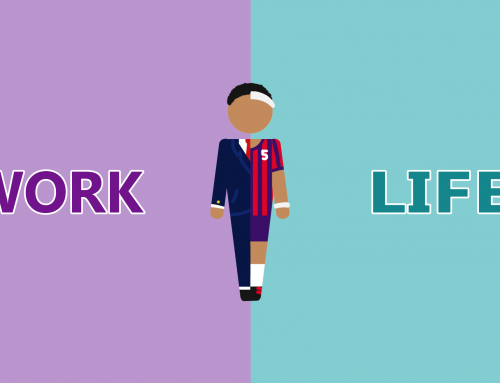1. Pay attention, and remark on good work
One of the easiest ways for an employee to start feeling unappreciated is when their work goes unnoticed. If your employee works extra hard and gets a project completed ahead of schedule, make sure to remark on it. Have they created something you love? Make sure to tell them. New compliment came in from a customer? Share it. These are all small things that you can do every day to show the people that work under you that you appreciate everything they do. And with the advent of social media and online work groups it is even easier. You might be too high up in a company to see the day to day workings of those under you but replying on a work post about an employee’s good work, even something as simple as ‘Nice job!’ can make a world of difference.
2. Don’t always jump to the negative conclusion
See if this sounds familiar. You walk into a room and two of your employees are chatting. You make a comment on them needing to work not gossip (or something along those lines). They look startled and explain they are discussing some important work-related topic. They look disgruntled and their conversation loses all momentum. They are negatively impacted in their workflow and will be more hesitant when engaging in even necessary conversations. So how could this have been avoided?
Don’t jump to the negative conclusion. Take a moment when entering a room. Listen to what the people around you are saying. Take note of how they are working. That way you might be able to walk in and help, rather than giving your workers the feeling that even when they are working, you still don’t appreciate them. By doing so, you will completely 180 your interactions with your employees. Instead of them being hesitant when you enter a room, wondering what you are going to say this time, they know you are here to provide constructive help and will be much more willing to approach you with issues.
3. Be more than an ‘open door’, go the extra mile to know what is happening in their lives, both in and out of work
An ‘open door’ policy is always good in an office but it can also still be a little daunting to approach from an employee’s point of view. It’s important as management (both lower and higher) to establish open communication with employees and that can be done as easily as making sure that you take the time to check-in with those that work for you. Whether it is something as simple as enquiring as to whether someone had a good weekend, or making sure to always say good morning, these little interactions put your employees at ease.
Have time for a quick chat before work? Take the time to do so. And remember the important details. Knowing that your employees’ kids play hockey and had a grand final might seem like a small thing but taking the time to ask how it went can have big impacts on how your employee views you. You’ll make yourself appear far more approachable and it will be reflected in a work force that is not only more at ease but will feel comfortable approaching you about issues that you need to know.
4. Create protocols to ease work flow, respond to suggestions to improve it, and stick to them
One of the biggest hindrances to a smooth-running office is a lack of clear communication, protocols or ability to get processes changed for the better. An employee that is unable to get clear instructions or is unable to address issues and improve them will often find themselves frustrated, not to mention resigned if underlying issues continuously happen. Find out from your team where the biggest issues of miscommunication are and create protocols to fix them. Listen to the thoughts of your employees that deal with these issues, they will often know of problems that you as management may not be aware of and may have already thought of solutions to the problem.
Listening to their ideas and implementing those that work will go a long way towards easing any frustrations caused by past issues. And remember, even if it is an issue that due to outside circumstances you cannot fix, thank your employee for bringing it to your attention, or agree that it is an issue that you will address as soon as circumstances allow. This will encourage your employees to bring any future issues to you and may help prevent a future disaster from taking place.
5. Encourage staff interactions both in and out of the office
One of the easiest ways to improve staff morale is to encourage positive relationships or providing fun, team things to do. These do not have to be large events. Sometimes, something as simple as Friday night drinks (and make sure there are non-alcoholic alternatives), or a monthly pizza lunch can make all the difference. It’s something for your employees to look forward to and help get them through a tough day. Alternatively, appoint someone as your ‘social co-ordinator’, who can let your team know about events or activities nearby that they might enjoy doing together after work.
6. Embrace the one-on-ones
One of the biggest complaint’s employees can have, especially in regard to their own work performance, can be a lack of communication and understanding. Most employees do not enjoy the concept of getting things wrong, and whilst it can be painful to hear how we may be going wrong, a clear, concise (and non-judgemental) correction can make work lives much easier. The one on one process, whereby management organises personal reviews with their employees is a great way to ease this process. It gives your employees a chance to get reviews on their work, where they can improve, and encouragement on their own progress. It also gives them a chance to query things or processes they don’t understand or may not feel confident on in an atmosphere conducive to conversation.
It is very important that Managers are also open to any comments or thoughts employees have in return. One on ones should be a safe place where both employee and manager can work together to create a harmonious working environment.













